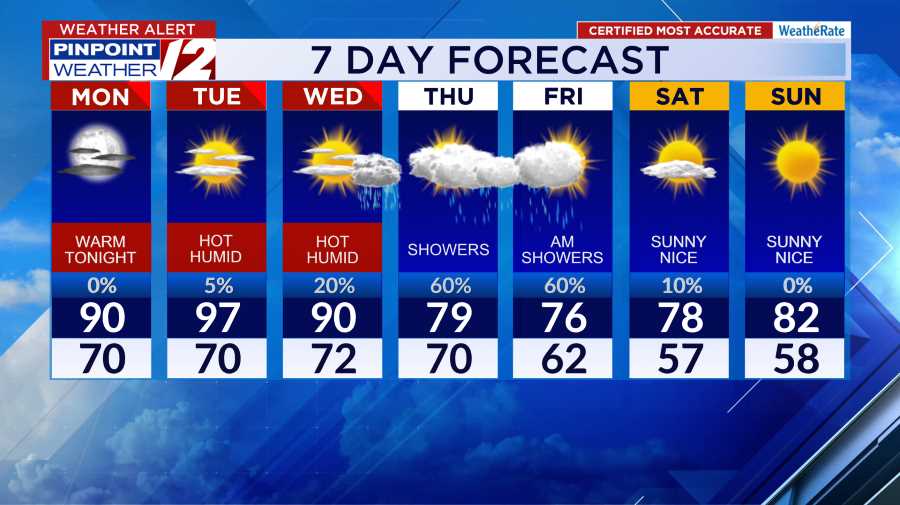PROVIDENCE, R.I. (WPRI) — Rhode Island has yet another statewide election coming up this March to approve or deny $400 million worth of borrowing to pay for projects such as affordable housing, parks and transportation.
R.I. Secretary of State Nellie Gorbea said her office will once again send out mail ballot applications to all registered voters, who will have to fill them out and return them in order to receive a mail ballot.
Voters will also have the option of voting early in-person for 20 days prior to the March 2 election, or voting in person at a polling place on the day of the election.
Gorbea on Monday announced key dates related to registering to vote for the election, voting early and returning the ballot applications:
- Sunday, Jan. 31: Deadline to register to vote
- Tuesday, Feb. 9: Deadline to submit mail ballot applications
- Wednesday, Feb. 10: Early in-person voting period begins
- Monday, March 1: Early in-person voting period ends at 4 p.m.
- Tuesday, March 2: Special Referenda Election, polls open 7 a.m. to 8 p.m.
Like the past two elections in Rhode Island, mail voters will not be required to have a notary or two witnesses sign their ballot envelopes, which was the procedure prior to the pandemic. The R.I. General Assembly waived the requirements for the special election when lawmakers passed the legislation approving the bond items.
In addition, $1.5 million was allocated for the Secretary of State’s office and the R.I. Board of Elections in the fiscal year 2020-21 budget to pay for the special election. Bond referenda are typically on the November ballot, but the items were not passed by the General Assembly in time to vote on them during a regularly scheduled election.
Additional grant money — roughly $223,000 — from the non-profit organization Center for Election Innovation and Research is being doled out to cities and towns, where local boards of canvassers are involved in running the special election.
Voters will be asked to approve or deny seven different bond items:
• Question 1: $107 million for higher education projects at all three state colleges, including a fine arts center at URI, Clarke Science Building at RIC, and renovations at all four CCRI campuses
• Question 2: $74 million for green initiatives including state beaches, campgrounds, parks (including the I-195 land park), clean water, the Woonasquatucket greenway project and Providence river dredging
• Question 3: $65 million for affordable housing development
• Question 4: $72 million for transportation infrastructure, to match federal funds for ports, highways, roads and bridges
• Question 5: $15 million for early childhood facilities and the education capital fund
• Question 6: $7 million for arts and culture including the Rhode Island State Council on the Arts grant program, Trinity Repertory Company and Rhode Island Philharmonic
• Question 7: $60 million for Quonset to develop the Port of Davisville and acquire and develop other industrial sites for “job-producing activities”
Gorbea’s office says the $400 million in bonds are estimated to cost $642 million with interest over 20 years, using a 5% interest rate. (The actual interest rate won’t be known until the state borrows the money, but rates have been low recently.)
Steph Machado (smachado@wpri.com) covers Providence, politics and more for WPRI 12. Follow her on Twitter and on Facebook




















